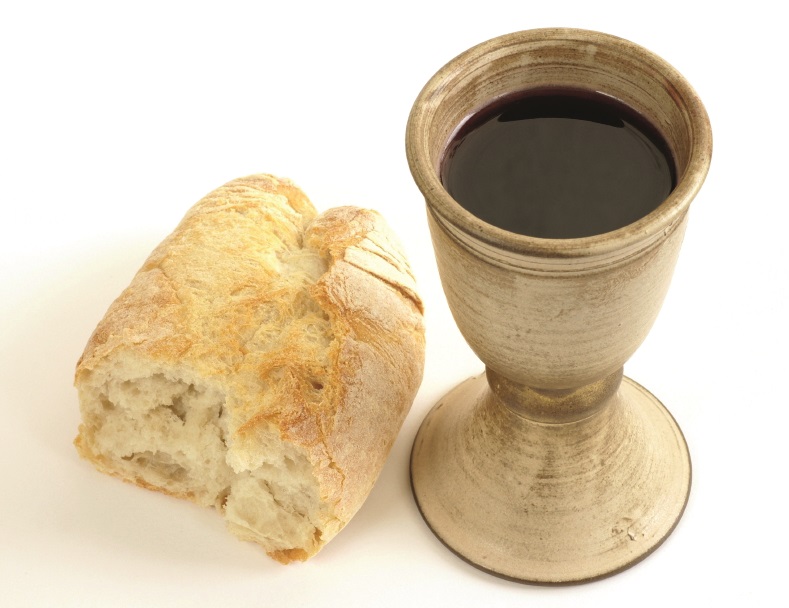On the day before he died the Lord Jesus shared a last meal with his disciples. He had already started making preparations for it:
Now on the first day of Unleavened Bread, when they killed the Passover lamb, his disciples said to him, “Where do you want us to go and prepare, that you may eat the Passover?” And he sent out two of his disciples and said to them, “Go into the city, and a man will meet you carrying a pitcher of water; follow him. Wherever he goes in, say to the master of the house, ‘The Teacher says, “Where is the guest room in which I may eat the Passover with my disciples?”’ Then he will show you a large upper room, furnished and prepared; there make ready for us” (Mark 14:12–15).

When all was ready and they were seated Jesus said, “With fervent desire I have desired to eat this Passover with you before I suffer” (Luke 22:15).
Jesus knew that his end was near, but having spent three years with his disciples, why did he treat this occasion with such urgency? The language he used is strong. One translator puts it this way: “How I have longed to eat this Passover with you.”
The Son of God desired, longed for, was passionate not only to eat the Passover meal, but to do so with his disciples, notwithstanding the fact that he knew one of them would betray him and another deny him and they would all abandon him.
I believe that by engaging in this feast the Lord wanted to impress upon the disciples the main part of his teaching over the past three years, and if we look at the Gospels we shall see how he demonstrated this.
Forgiveness
Jesus told them that one of them would betray him and Matthew tells us that they were exceedingly sorrowful, and each of them began to say to him, “Lord, is it I?” (26:22). Jesus did not announce to the group, but he quietly told John:
“It is he to whom I shall give a piece of bread when I have dipped it.” And having dipped the bread, he gave it to Judas Iscariot, the son of Simon (John 13:26).
Commentators suggest that it was customary for the host of a meal to give the first piece of bread to someone of importance who would be sitting next to them. If Judas was sitting next to the Lord and partook of the bread first, could it be a sign that Jesus would forgive Judas of this forthcoming betrayal – thereby practising what he had preached to his disciples and followers, that we have to forgive?
Going on a little further to when the Lord was crucified, scripture records that he cried to his Father:
Father, forgive them, for they do not know what they do (Luke 23:34).
During his ministry Jesus had demonstrated on many occasions the need for forgiveness, for instance:
Judge not, and you shall not be judged. Condemn not, and you shall not be condemned. Forgive, and you will be forgiven (Luke 6:37).
Humility
Returning to Christ’s desire to meet with his disciples in this way, he wanted as far as it was possible to strengthen them for what lay ahead. He had been their guide for three years, and shortly they would be on their own.
In John 13 we have the record of Jesus washing his disciples’ feet. Peter protested (verse 8). But on an occasion like this it was necessary for Jesus to do it. He explained:
If I then, your Lord and Teacher, have washed your feet, you also ought to wash one another’s feet. For I have given you an example, that you should do as I have done to you (v14–15).
Jesus was demonstrating humility through which he showed his love for them, thus fulfilling the words of scripture:
What does the Lord require of you but to do justly, to love mercy, and to walk humbly with your God? (Micah 6:8).
Love
Jesus continued:
A new commandment I give to you, that you love one another; as I have loved you, that you also love one another. By this all will know that you are my disciples, if you have love for one another (John 13:34–35).
He was to demonstrate his love by the great sacrifice that he made.
Greater love has no one than this, than to lay down one’s life for his friends (John 15:13).
So at this feast Jesus stressed the importance of forgiveness, humility and love. And he told them to “do this in remembrance of me” (Luke 22:19).
In obedience to this command, down through the centuries his followers have regularly shared bread and wine in memory of their Lord.
This simple feast reminds them of the power and the true wealth of Jesus, their host. They have been graciously invited to his house and offered peace and fellowship with him. It is an honour and privilege to be at the table of the Lord.
Roy Soffe

